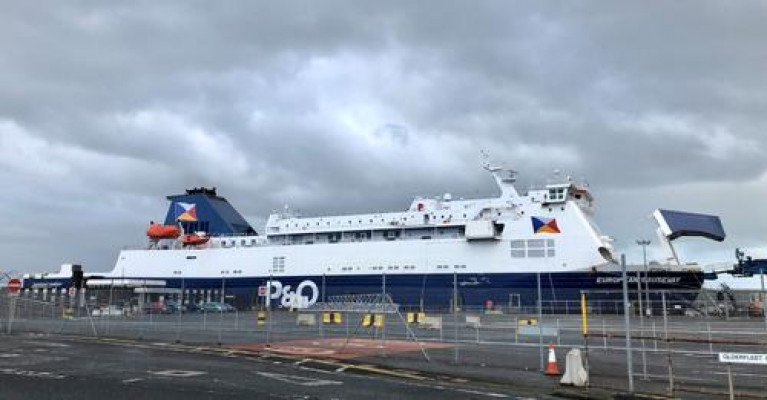Displaying items by tag: P&O pledges
Ferry Firm P&O Pledges Full Investigation after European Causeway Loses Power off Antrim Coast
Ferry operator P&O has said a full investigation will be carried out after a vessel travelling to Larne was left to drift off the coast of Co Antrim after losing power.
The 'European Causeway' - which operates between Larne and Cairnryan - had what the operator described as a "mechanical failure" on a sailing to Northern Ireland on Tuesday afternoon.
Emergency rescue crews from the coastguard and RNLI raced to the scene, however, P&O later said there were no injuries and the Maritime and Coastguard Agency said there were no concerns for safety.
One passenger told UTV the engine just stopped working and then it restarted and continued on for another 10 minutes or so.
"Then it just stopped and it completely blacked out, all the electrics and everything were just down."
A spokesperson for P&O Ferries confirmed that the vessel finished the journey "under its own propulsion".
They said: “Following a temporary mechanical issue, the European Causeway is now continuing on its scheduled journey to the Port of Larne under its own propulsion, with local tugs on standby, where it will discharge its passengers and cargo as planned.
"There are no reported injuries onboard and all the relevant authorities have been informed. Once in dock a full independent investigation will be undertaken.”
ITV News has further coverage of the ferry which docked in the Co. Antrim port.






























































